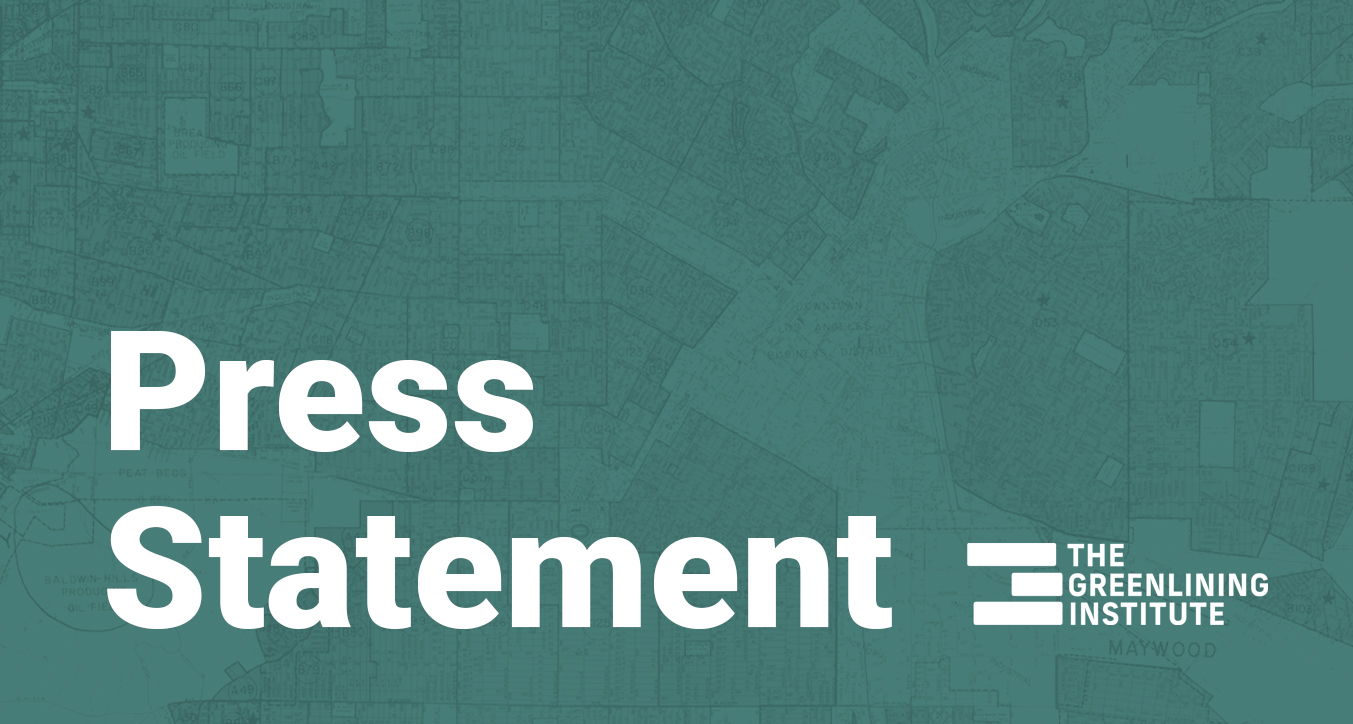A Quick Look at the Biden-Harris Clean Energy Plan, and its California Connections

Media Contact
Danielle Bell
SENIOR PROGRAM MANAGER FOR MEDIA RELATIONS
media@greenlining.org danielle.bell@greenlining.orgBy Melanie Curry
StreetsBlog Cal
The Biden-Harris Clean Energy Plan is a 400-plus-page project of “Clean Energy for Biden,” a group of clean economy leaders, advocates, policymakers, and former government officials that came together in April to help formulate a platform and help get a new president in the White House. The plan is really a series of policy papers on what is required to transition to 100 percent clean energy in the U.S. It covers workforce development, necessary investments and incentives, transportation issues, rural development, the encouragement of new technologies, and strengthening the energy grid itself.
The oil industry is creaking its way to obsolescence, in one breath claiming that a Biden win will cause a deep depression, the loss of millions of jobs, and six-dollar-a-gallon gasoline, and in the next that they’re not in the least worried about a Biden presidency because they’ll be able to “get his staff on board.”
The industry will do whatever it can, as New York Times reporter Hiroko Tabuchi reports. Her recent investigation found that the industry has invested in an increasingly sophisticated and underhanded game plan to influence policy, creating industry-backed organizations that pretend to be “grassroots,” fake Facebook profiles, misleading initiatives and campaigns, and “news sites” that promulgated pro-industry “news.”
Meanwhile, the Biden-Harris plan, Building Back Better: Policy Recommendations for an Equitable Clean Energy-Powered Recovery and Achieving a 100 Percent Carbon Neutral Economy by 2050 [PDF], is based on science resulting from years of work by numerous organizations.
Streetsblog USA already provided a general summary of the plan here. It includes discussion of ways to end reliance on fossil fuels and build a just transition to clean energy, which must be a core principle of fighting climate change if that fight is to succeed. The plan starts a national conversation that has already begun in California: how to stop investments in infrastructure projects that further reliance on fossil fuels.
California has no answer on that question yet.
One particular chapter in the Biden-Harris plan, “Strengthening Climate Justice and Expanding Equity,” contains insights from a number of California organizations working in this area. Among them are The Greenlining Institute, which has issued a Mobility Equity Framework to guide California agencies towards more equitable outcomes from their transportation, energy, and climate policies.
To start, this country must focus on investing in frontline communities – by recognizing and beginning to undo this nation’s history of ignoring and marginalizing low-income communities and communities of color. These communities are subject to some of the worst effects from climate change, air pollution, and COVID, a triple threat that is due to years of underinvestment.
Says the plan:
Black and Hispanic communities in the U.S. are exposed to far more air pollution than they produce even though they drive less, use less electricity and consume fewer goods and services. By contrast, white Americans experience better air quality than the national average, even though their activities are the source of most toxic air pollutants.
If the Biden-Harris promise to base policy on science is kept, these irrefutable facts should guide investments towards those people and communities who most need them.
The plan also addresses the connections between community health, COVID, and transportation. One chapter, “Improving Frontline and Vulnerable Community Health and COVID-19 Resistance Through Transportation,” incorporates recommendations from The Greenlining Institute’s Mobility Equity Framework, such as improving “cash for clunkers” and electric vehicle rebate programs so they are available to more people and provide incentives that work for people who don’t make a lot of money. The chapter recommends replicating California programs such as Clean Mobility Options, the Sustainable Transportation Equity Pilot, Clean Mobility in Schools, the state’s “one-stop-shop” platform bringing all clean energy incentive applications, including solar infrastructure, onto one site, and supporting carsharing and micromobility hubs at affordable housing developments.
The entire plan focuses on benefits each of these policy recommendations would have in terms of job creation, and climate and economic benefits. For example, says the plan,
Switching from gasoline to electricity saves consumers money. During 2018, rural drivers in the following states saved by switching: $763 in Arizona, $748 in Florida, $770 in Iowa, $673 in Michigan, $1,011 in Nevada, $684 in Ohio, $741 i n North Carolina, $674 in Texas, $668 in Virginia, $733 in Pennsylvania, $552 in Maine, and $ 635 in Wisconsin.
The plan includes specific discussions on reducing the energy burden for disadvantaged communities via affordable and accessible solar and energy efficiency, cost savings and other benefits from clean energy in affordable housing, and making America’s schools healthy and resilient. May of these recommendations will seem familiar to those who have been following the conversations in California about specific cap-and-trade funded programs, or the Active Transportation Program, for example, which have been called to address racial equity and environmental justice in ways that other programs, like highway funding, have not.
That’s an important reminder: these are policy recommendations, and they are just the start of a conversation. For example, the “Biden Plan to Secure Environmental Justice and Equitable Economic Opportunity” makes the recommendation to mandate pollution monitoring in frontline communities. But what data to collect, how to collect it, and how to use that data are open questions, left for later, that could be undermined and distracted from by players that don’t want attention on that information.
Because data is power, but it is only data. If the new Biden-Harris team lets itself get mired in the kind of pointless, distracting discussions that have taken place in California around A.B. 617, progress will be too slow.


